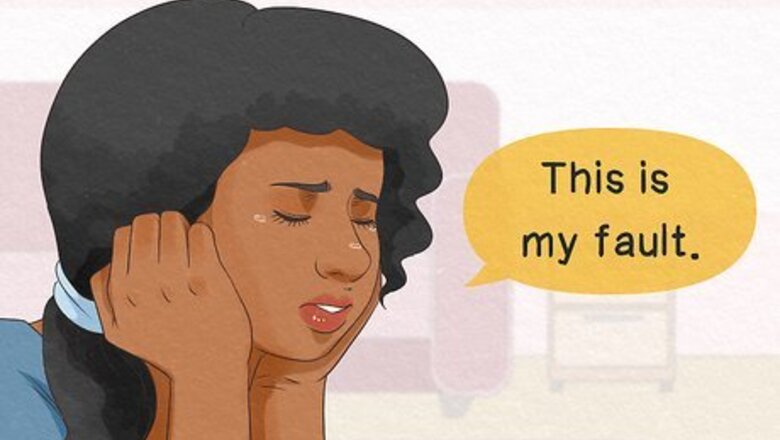
views
X
Trustworthy Source
American Psychological Association
Leading scientific and professional organization of licensed psychologists
Go to source
But sometimes feelings of insecurity, doubt, and anxiety can creep in, making our most treasured and intimate relationships painful. If you’re experiencing insecurity in your relationship, you may be wondering what might be the cause. We’ve provided here a list of some of the most common sources of relationship anxiety, as well as some steps you can take to address them, so that you can build a healthier and more sustainable relationship with your partner.
Low self-esteem

Low self-esteem is the most common cause of insecurity. Studies have shown that when you have low self-esteem, you might inaccurately expect rejection from your partner, and decide to lash out first to defend yourself. This can cause major hurdles. With low self-esteem, you can also feel unlovable, which makes it difficult to feel secure with your partner. Low self-esteem often comes from experiences in childhood or past relationships. Constantly feeling like you’re ‘not good enough’ might mean you’re experiencing low self-esteem. Building your self-esteem can take daily practice, but by learning how to appreciate your good qualities and challenging negative ‘self-talk,’ you will grow into a more confident and stronger individual.
Insecure attachment styles

Attachment styles describe how we relate to each other. If you experienced constant care and responsiveness by your caretakers during early childhood, you’ll likely grow up feeling secure in your relationships with other people. But if you didn’t experience this kind of care when you were young, you may develop an insecure attachment style, and find it hard to feel safe and supported in your relationships. Ask yourself how your relationships have been in the past, and see if there are any patterns. Do you find it difficult to believe that someone cares about you? You might have an insecure attachment style. Don’t feel like having an insecure attachment style is permanent. By developing close relationships, romantic or not, with people who model a secure attachment style, you can learn to approach your relationships the same way. People with a secure attachment style tend to feel confident that others will be there for them when they need them. Try bringing more people into your life who say things like, “I know I can count on you.” Seeing a licensed therapist can also help your work through challenges with changing your attachment style.
Lack of trust

Lacking trust in your partner is both a symptom and a cause of insecurity. When you’re afraid of being cheated on, for example, you might do things that further damage trust. Snooping through your partner’s phone is not only a sign that there’s insecurity in the relationship, but is also an action that can cause even more insecurity. On the flip-side, when you don’t feel trusted by your partner, you might emotionally withdraw from the relationship. Building trust with your partner, or rebuilding it after it’s been shaken, takes practice and time. You can see a couple’s therapist as well to help you navigate through difficult conversations. Remember that each person in a relationship has the responsibility to treat the other with respect, especially when they’re vulnerable. Belittling or shutting down your partner can lead to secrecy and feelings of hurt.
Unresolved mental health issues
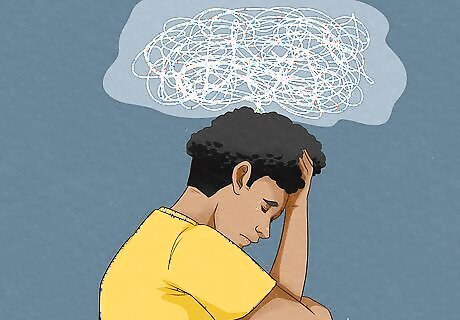
Depression and anxiety damage confidence in your relationship. When you’re suffering from mental health issues, you might end up withdrawing from others. Seeking support can restore your contentment with romantic and other relationships. Studies have shown that, as difficult as it may be, confiding in your partner about your struggles with mental health tends to have excellent results. If you haven’t talked to your partner about your mental health struggles before, you can open a conversation by saying something like, “I want to talk to you about something that I’ve been going through for some time now.” Most people report feeling accepted by their partners after disclosing issues with their mental health, even if they felt nervous beforehand. Don’t let fears of rejection keep you from seeking support from your partner.
Past relationships

Don’t let your partner’s past relationships make you anxious. If you’re worried that you aren’t able to match up to their ex, this can cause feelings of jealousy. It also keeps you from appreciating the stability of your relationship in the present. If you catch yourself constantly thinking about your partner’s past relationships, this might be a sign that this is something you’ll need to work through. Remember that while some feelings of jealousy are normal, it’s important not to let them get out of hand or take them out on your partner. Acknowledge that everyone has the right to their own private feelings and thoughts, and that you cannot control this. What’s much more important is how people act in the present.
Doubts over long-term potential

Doubting whether your relationship will last forever is normal. However, constantly worrying about the future of your relationship can be extremely damaging. If you find yourself thinking about things like, “Will they still like me when they see the real me?” this is a sign that it may be time to take a step back and think about how you’re approaching the relationship. Focus on the present of your relationship, rather than imagining its future. This will allow you to appreciate your relationship for what it is. Trust that your partner sees and loves parts of you that you might not even see yourself.
Anxiety over mismatched relationship goals

You don’t need all the same goals as your partner for a successful relationship. But constantly asking yourself whether they want kids or not, or to get married or not, can cause a lot of stress. Even unanswered questions like, “Where do they want to live in 5 years?” can be the cause of a lot of anxiety. If you haven’t had an honest conversation yet about your goals for the relationship, it may be time. Take some time to ask each other where you see the relationship in 5 or 10 years. Lay out the things that are most important for each of you in your relationship. If you and your partner indeed have mismatched relationship goals, it’s probably time to think about compromise.
Trauma from the past

Trauma doesn’t just come from abusive exes. The trauma that impacts relationships is linked to a number of past experiences. If you’re a child of divorce, you’re more likely to experience insecurity in your adult relationships. Even past experiences, like having been isolated or bullied as a child, can lead to difficulties with future intimate connections. Remember you’ll be OK. With the right support, and with the ability to identify what patterns of thinking are responses to past trauma, you can make trauma play less of a role in your relationships. Trauma doesn’t ruin your future, and many people are able to grow from past traumatic experiences. Past trauma can become a motivation for future success. Practicing self-care by living an active and healthy lifestyle can go a long way in helping you heal from trauma. Seeking therapy can also help you face the past in a constructive and deliberate way.
Stressful events

Situations like bankruptcy or illness seriously impact our relationships. When you’re going through stressful circumstances, you might lose the sense of security you get from a partner. These feelings may subside once the stress does, but they could linger for some time afterward. Although being in a romantic partnership comes with a lot of responsibility, it also offers a lot of support. Treat your partner as someone you can rely on, and tell them this verbally.
Dealing with loss
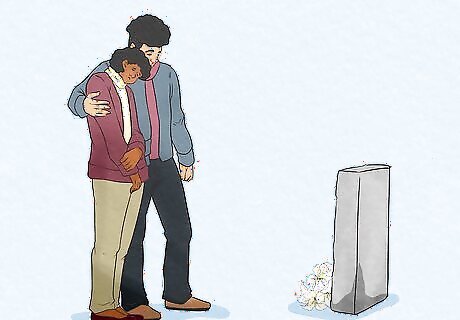
When you’re grieving, your relationship can take a hit. Things, including your relationships, may not seem as permanent as they once were. Grief isn’t limited to the death of someone close to you. It can also come from things like losing a job, moving to a new place, or other times when one experiences a feeling of loss. When experiencing grief, it’s helpful to ask yourself “Who can help me with this feeling of loss, and how?” Turning to your partner for support during this time can help build security in your relationship. Talking to a counselor or therapist can also help you find strategies to move on and start enjoying your life again.
Poor communication skills
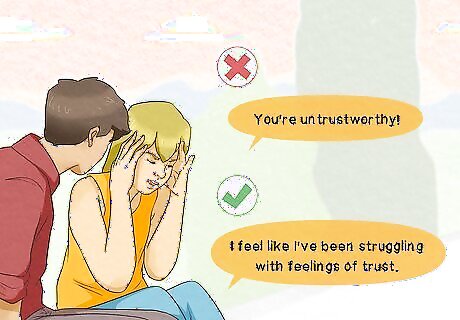
Talk about your insecurities and vulnerabilities constructively to work through them. When expressing your feelings of insecurity in the relationship, it’s important to try and use language that doesn’t blame your partner. Otherwise, you could end up in a situation where both of you feel like you are walking on eggshells with one another, and feel even less secure. When speaking with your partner about your feelings of insecurity, try to use “I”-statements. For example, instead of saying “You’re untrustworthy,” say, “I feel like I’ve been struggling with feelings of trust.” For help communicating, finding a couple’s therapist is an excellent idea. They can help both you and your partner explain your feelings in the most constructive way possible, as well as find strategies to rebuild security in your relationship.











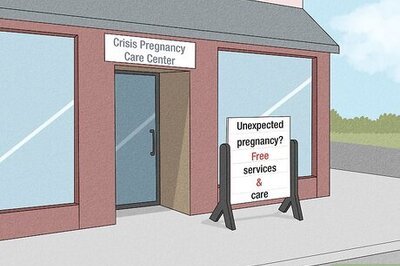

Comments
0 comment